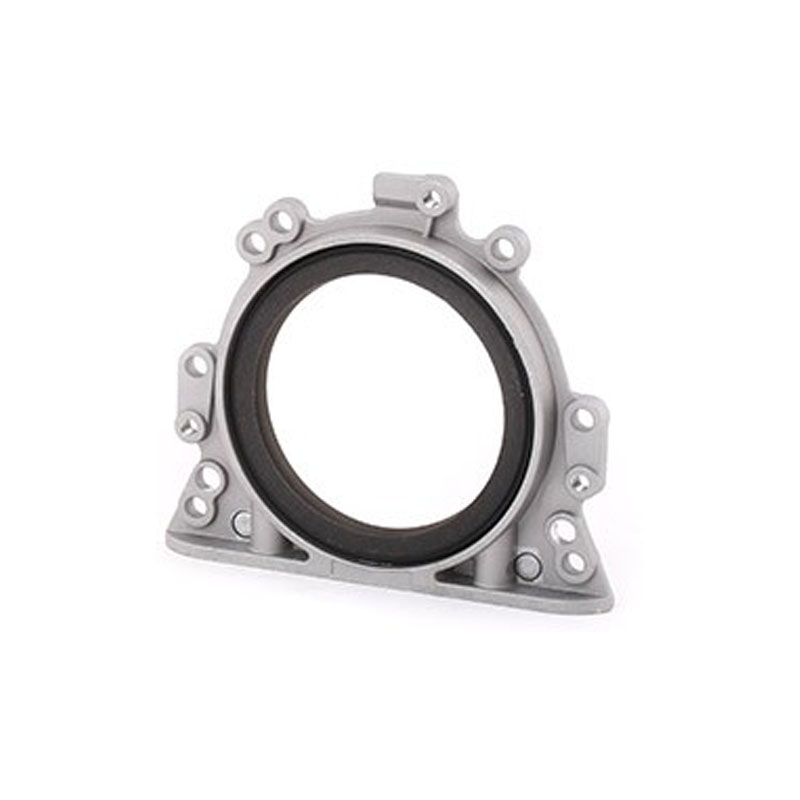Understanding Cassette Oil Seals and Their Importance in Engine Performance
Understanding Cassette Oil Seals Importance, Function, and Applications
In the world of mechanical engineering and automotive design, one component often overlooked but critically important is the cassette oil seal. These seals play a pivotal role in ensuring the longevity and efficiency of various machinery, especially in engines and gearboxes. Despite their small size, cassette oil seals are integral to maintaining optimal performance and preventing costly leaks.
What is a Cassette Oil Seal?
A cassette oil seal, commonly referred to as a lip seal or simply an oil seal, is designed to retain lubricants within rotating or moving parts of machinery or engines. It serves as a barrier to prevent the escape of oils and other lubricants while simultaneously keeping contaminants such as dirt and moisture from entering the sealed environment. This dual function is crucial for maintaining fluid integrity, which ensures smooth operation and reduces wear and tear on critical components.
Structure and Design
The typical cassette oil seal consists of a rubber or synthetic elastomer body, which is molded to form a flexible sealing lip. This lip is engineered to create a tight fit against a shaft, allowing for minimal clearance while accommodating slight movements. The design may also include a spring to enhance the sealing capability by applying consistent pressure against the rotating shaft, ensuring that the seal remains functional under varying operational conditions.
Importance of Cassette Oil Seals
1. Preventing Oil Leaks One of the primary functions of cassette oil seals is to prevent oil leakage. Leaks can lead to a drop in lubricant levels, causing increased friction and heat that can damage components over time. For vehicles, oil leaks can also lead to environmental concerns and regulatory issues.
cassette oil seal

2. Protecting Against Contaminants In addition to keeping oils contained, these seals shield internal machinery from dust, dirt, and moisture. Contaminants can severely impair the performance and lifespan of gears, bearings, and other critical components.
3. Cost Efficiency By preventing leaks and contamination, cassette oil seals contribute to operational efficiency. They help reduce maintenance costs and prolong the lifespan of machinery, leading to significant savings for industries relying on various types of equipment.
4. Versatility in Application Cassette oil seals are used in a diverse range of applications, from automotive engines to industrial machinery. They are found in gearboxes, power steering systems, hydraulic pumps, and many other types of rotating machinery. Their adaptability makes them a staple in both production and repair settings.
Selecting the Right Cassette Oil Seal
When it comes to choosing a cassette oil seal, several factors must be taken into consideration. The material of the seal must be compatible with the type of oil used and the operating temperatures the machinery will encounter. The dimensions of the seal must match the application, and it’s essential to choose a seal designed for the specific rotary motion involved. Additionally, one must consider factors such as the operating environment, potential exposure to chemicals, and the anticipated service life of the seal.
Maintenance and Replacement
While cassette oil seals are designed to last, they can wear out over time due to heat, pressure, and environmental factors. Regular inspections can help identify signs of wear such as leaks or deformation. Replacing a worn-out oil seal promptly is crucial to maintain the efficiency of the machinery and prevent further damage.
In conclusion, cassette oil seals may seem like minor components but are vital for the efficient and safe operation of various machines and vehicles. Understanding their function, importance, and proper maintenance can lead to better performance, reduced costs, and prolonged service life for mechanical systems. Whether in a car engine or industrial machinery, the role of cassette oil seals cannot be underestimated. Investing in quality seals and adhering to maintenance best practices will result in significant operational benefits and peace of mind.
-
Simplifying Oil Changes: A Comprehensive Guide to Oil Drain Plugs and Their Variants
News Aug.04,2025
-
Mastering Oil Drain Maintenance: Solutions for Stripped, Worn, and Upgraded Oil Plugs
News Aug.04,2025
-
Fixing Oil Pan Plug Issues: Leaks, Stripped Nuts, and the Right Replacement Solutions
News Aug.04,2025
-
Everything You Need to Know About Oil Drain Plugs: Sizes, Fixes, and Upgrades
News Aug.04,2025
-
Choosing the Right Oil Drain Plug: A Guide to Sizes, Materials, and Drain Innovations
News Aug.04,2025
-
A Complete Guide to Automotive Drain Plugs: Types, Problems, and Innovative Solutions
News Aug.04,2025
-
The Ultimate Guide to Car Repair Kits: Tools and Essentials Every Driver Should Own
News Aug.01,2025
Products categories















